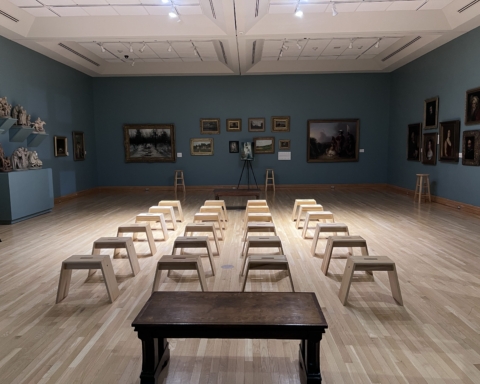By Blagoja Dimitrievski
Contributing Writer
Ashley Hong was born in Guam to Korean parents. She lived in Guam until she was 5 years old and then moved to Korea with her parents. She first learned to speak Korean at home. Hong said she learned English as her second language at International Christian School. She moved to Los Angeles, California, with her family at 15.
Hong, a biology major, is required to complete a second language course at the 202-level or higher by St. Bonaventure University in order to graduate. Hong, 22, said she took the, Test of English as a Foreign Language (TOEFL) prior to attending university. However, the university never asked for her results.
Hong completed the requirement by taking Spanish. She said she did not mind learning another language.
The TOEFL is a test for foreign students to prove English is their second language. Another method available for international students is the College Level Examination Program (CLEP).
Four of 13 students interviewed took the TOEFL and two of 13 took the CLEP. Of the seven students who require a second language, three still had to take a completely new language even though they had taken the TOEFL.
Business majors at St. Bonaventure do not have a second language-requirement. Carol Fischer, interim dean of the School of Business, said business students do not have the availability for a language requirement because other courses take priority. However, if students minor in international business they must complete a 202-level language course.
Students such as Hector Martinez, an engineering major, are allowed to take a 300-level language, with the recommendation of a professor, in order to complete the credits needed.
Hong, Mariam Skhirtladze and Viacheslav Shchukin, a junior international studies major, all said they know more than two languages, learned English as a second language, completed the TOEFL and still took another language to fulfill a requirement. However, all three said they did not mind learning another language.
Skhirtladze, a sophomore internatonal studies major, said that it would have been much easier if she did not have to learn a fourth language on top of Georgian, Russian and English.
Alva Cellini, director of modern languages, said the university offers what the students demand. Cost impacts the languages offered, said Cellini. If the university cannot afford to provide the language, it will be dropped.
Cellini, fluent in Spanish, Italian, French, Slovenian and English, said it would not be a bad idea for all majors to have some type of second-language requirement. Globalization is leading to constant interaction with foreign languages, especially in the business world, Cellini said.
Xiao-Ning Zhang, chair of biology and biochemistry, agreed with Cellini. Zhang said doctors all over the world are working together. It makes communicating much more efficient if both sides know phrases in each other’s languages. That way meanings do not get lost in translation, said Zhang.
Hong said she enjoyed learning another language; unfortunately she has yet to find a use for a language she did not need.
Cellini and Zhang said it is beneficial for communication.
dimitrb11@bonaventure.edu







